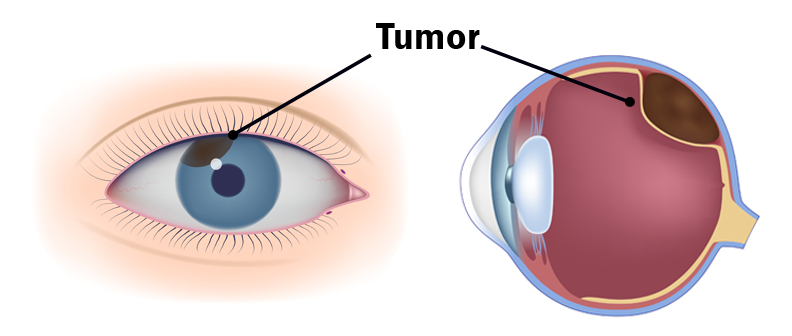 Summertime often means long hours spent outdoors—whether at the beach, hiking, barbecuing, or just soaking up the sunshine. Most of us know to apply sunscreen to protect our skin from harmful UV rays, but there’s one vital area we often overlook: Our Eyes.
Summertime often means long hours spent outdoors—whether at the beach, hiking, barbecuing, or just soaking up the sunshine. Most of us know to apply sunscreen to protect our skin from harmful UV rays, but there’s one vital area we often overlook: Our Eyes.
Just like your skin, your eyes are vulnerable to the damaging effects of ultraviolet (UV) radiation. Prolonged exposure to UV rays can lead to serious eye health issues over time, including cataracts, macular degeneration, and even certain types of eye cancer.
UV radiation, whether from natural sunlight or indoor artificial rays, can damage the eye’s surface tissues as well as the cornea and lens. Unfortunately, many people are unaware of the dangers UV light can pose. By wearing UV-blocking sunglasses, you can enjoy the summer safely while lowering your risk for potentially blinding eye diseases.
Here are a few of the eye conditions you can avoid by wearing sunglasses:
- Cataracts and eye cancers can take years to develop. Each time you bask in the sun without eye protection, you increase your risk of serious disease. Babies and children need to wear hats and sunglasses for this very reason. People of all ages should take precautions whenever they are outdoors.
- Growths on the eye, such as pterygium, can show up in our teens or 20s. Surfers, skiers, fishermen, farmers, and others who spend long hours under the midday sun or near rivers, oceans, and mountains are at risk.
- Snow blindness can happen after exposure to UV reflections off of snow, ice, sand, or water.
The good news? Protecting your eyes is simple.
Here’s how you can safeguard your vision this summer and every season
Many sunglasses shoppers forget to check the UV rating before purchasing a pair. Be sure to select sunglasses that provide 100% UV or UV400 protection, or block both UV-A and UV-B rays.
Here are additional tips to protect your eyes from UV damage, no matter what the season:
- Wear a hat along with your sunglasses. Broad-brimmed hats are best.
- Protect children and senior citizens with hats and sunglasses. Everyone is at risk for sun damage.
- Know that clouds don’t block UV light. The sun’s rays can pass through haze and clouds.
- Sunlight is strongest midday to early afternoon. It is also stronger at higher altitudes and when reflected off of water, ice, or snow.
- Never look directly at the sun. Doing so at any time, including during an eclipse, can damage the eye’s retina and cause a serious injury known as solar retinopathy.
- Avoid tanning beds. Tanning beds pose the same risks to your eyes and body as outdoor UV light.
Long-term eye health starts with small steps today. By embracing these simple guidelines, your eyes will thank you for years to come.
Support Sight-Saving Research by Donating to the Discovery Eye Foundation




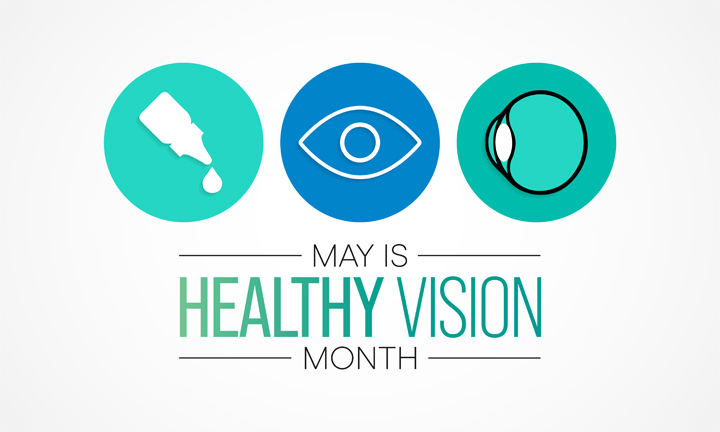
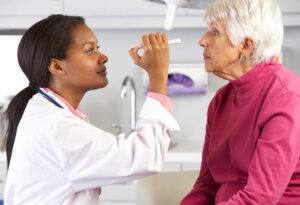

 Healthy Aging Month is an annual health observance designed to focus national attention on the positive aspects of growing older. Aging is a process that brings many changes. Vision loss and blindness, however, do not have to be one of them. There are several simple steps you can take to help keep your eyes healthy for the rest of your life.
Healthy Aging Month is an annual health observance designed to focus national attention on the positive aspects of growing older. Aging is a process that brings many changes. Vision loss and blindness, however, do not have to be one of them. There are several simple steps you can take to help keep your eyes healthy for the rest of your life.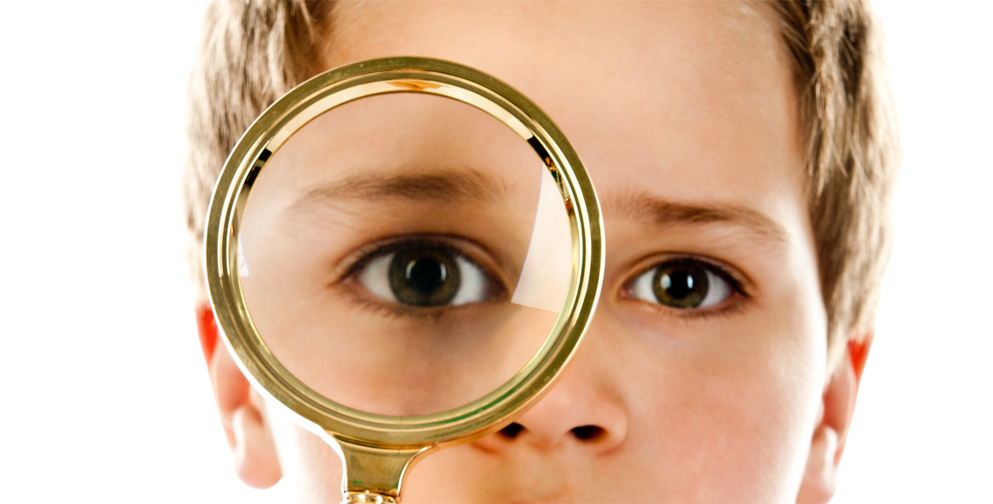 When you think of cancer, most of us do not think about the eye or vision. Though rare, cancer can start inside or outside of the eye. If cancer starts inside the eyeball it’s called intraocular and if it starts outside the eye (eyelid or in the eye socket) then it’s called extraocular tumor. It can occur in both children and adults. Most major eye centers have specialists who are trained in the diagnosis and treatment of eye cancers.
When you think of cancer, most of us do not think about the eye or vision. Though rare, cancer can start inside or outside of the eye. If cancer starts inside the eyeball it’s called intraocular and if it starts outside the eye (eyelid or in the eye socket) then it’s called extraocular tumor. It can occur in both children and adults. Most major eye centers have specialists who are trained in the diagnosis and treatment of eye cancers.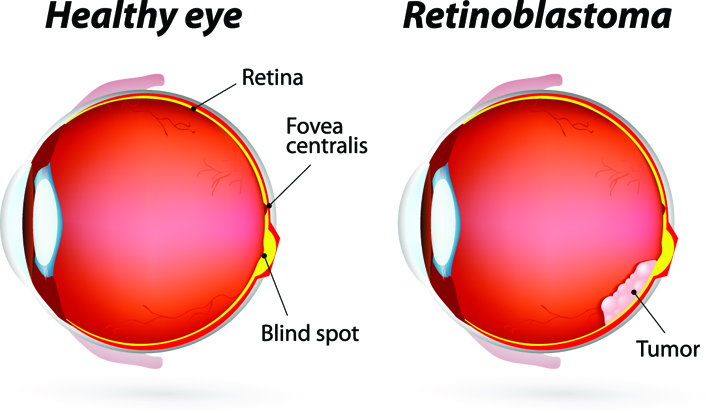 At the later stage of this cancer, the only one way to survive is to remove the eyeball (enucleation). Like many of other types of cancer, retinoblastoma has a genetic component so genetic testing needs to be done. The tumor begins with the RB1 gene mutation that stimulates retinal cells to develop into a tumor called a retinoblastoma. The RB1 mutation can be inherited from the parents, but in some cases it is sporadic and not inherited. There are various treatments such as surgery, chemotherapy, radiotherapy etc. to cure retinoblastoma cancer. Rarely it can spread beyond the eye.
At the later stage of this cancer, the only one way to survive is to remove the eyeball (enucleation). Like many of other types of cancer, retinoblastoma has a genetic component so genetic testing needs to be done. The tumor begins with the RB1 gene mutation that stimulates retinal cells to develop into a tumor called a retinoblastoma. The RB1 mutation can be inherited from the parents, but in some cases it is sporadic and not inherited. There are various treatments such as surgery, chemotherapy, radiotherapy etc. to cure retinoblastoma cancer. Rarely it can spread beyond the eye. 